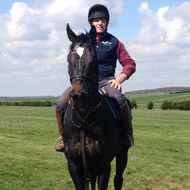Candidate calls for minimum standard of out-of-hours cover

"I think practices should be obliged to inform clients of their out of hours arrangements and capabilities."
"Competition is a good thing, but not at the client and patient's expense," says RCVS Council candidate, James Main.
Speaking to MRCVS, James said: "The playing field needs to be kept level and I feel that the contentious issue of out-of-hours cover is an area which is being used to cut corners and costs in overall service to our patients.
"Telling a client in an emergency to drive 30 miles with their pet after relieving them of £40 for a booster vaccination at our convenience in the morning, doesn't always leave a good impression.
"I think practices should be obliged to inform clients of their out of hours arrangements and capabilities, and that a minimum standard should be set by the College."
James Main, an equine veterinary consultant from Oxfordshire, has had first-hand experience of the RCVS disciplinary procedure. If elected to Council, he hopes to represent the practitioner and improve communication and understanding.
"The College needs to act with more compassion, especially in their disciplinary procedures, and possibly think about a bigger range of punishments for first offences especially when animals well-being has not been involved."
James also believes that the College should also have a stronger voice or stance when it comes to difficult issues such as non-stun slaughter or the badger cull, "even if it is only to suggest a way forward so that the right decisions are reached," he said.
If elected to Council, James also hopes to use his veterinary colleagues in practice as his soundboard. "In my opinion, it is a strength to listen to friends and family, and a weakness not to.
"People say that as veterinary surgeons we are lucky that we only need to examine our patients and they can't talk back as compared to a doctor with his patient. However, I have always preached that listening to the animal's owner is vital as they spend 24 hours a day with their pet (our patient) so can give us vital clues."
To read our full interview with James, visit www.vetcommunity.com. Log in or sign up for a free account to read more on the elections and discuss.



 The Animal and Plant Health Agency (APHA) has updated its online reporting service for dead wild birds.
The Animal and Plant Health Agency (APHA) has updated its online reporting service for dead wild birds.